
‘Afraid of the water’? Life in a city that dumps billions of litres of raw sewage into lakes and rivers
10 billion litres of sewage are dumped into Winnipeg’s lakes and rivers each year. Some...
So far, the new year seems to be extracting the same old headlines from British Columbia’s battered forests: more old-growth logging, more pulp-mill closures and — coming soon — more protests.
On Feb. 25, a march and rally for ancient forests will converge outside the provincial legislature in Victoria. The protest was announced by a coalition of 168 organizations who released a declaration earlier this month called United We Stand, calling on premier David Eby “to implement a paradigm shift in forest stewardship.” Organizers expect a massive turnout. Given the record number of citizens who have already been jailed for this cause, there’s every reason to believe the public will deliver.
Somewhat ironically, the notion of a “paradigm shift” comes from the government itself — or rather, from the government-commissioned old-growth strategic review, published in September 2020. This 71-page document has become a sort of bible for B.C.’s diverse community of environmental advocates.
The provincial government loves it too. Immediately after it was published, the BC NDP promised to implement the review’s 14 recommendations, including the protection of B.C.’s last remaining old-growth forest.
But, more than two years and 1,100 arrests since the strategic review came out, ancient trees are still falling all across the province.
All of which begs a question that ought to have an easy answer: what gives?
Garry Merkel, a Tahltan forester from northern B.C. who lives off-grid just outside of Kimberley, B.C., wrote the old-growth strategic review with co-author Al Gorley.
“We’re having casualties, there’s no question,” Merkel said when I called him earlier this month. “But that number is getting very small now.”
Many environmental activists have portrayed the B.C. NDP’s public embrace of Merkel’s vision as little more than a diversionary tactic known as “talk and log” — a phrase that appears in the United We Stand document.
So, I wanted to know, what does the strategic review’s co-author have to say?
“I think that a lot of the environmental community, if they saw what was going on and really understood it, would be much more appreciative of the progress that has been made. I’m not saying it’s all roses. But we’re talking about changing a 200-year-old culture here overnight. That’s just frigging not easy to do.”
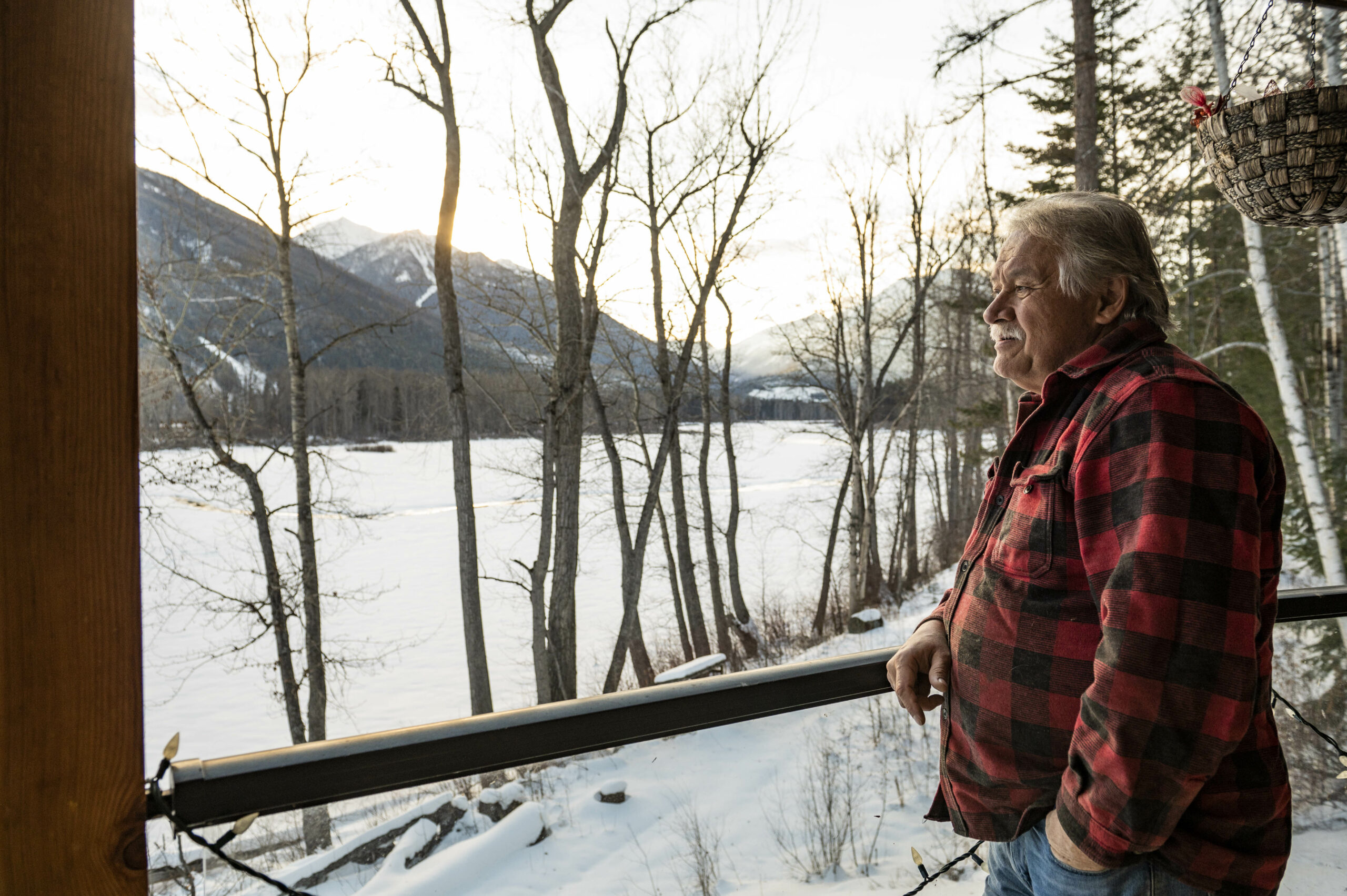
Merkel comes across as both affable and no-nonsense, a rare combination that undoubtedly serves him well in his current job: advising B.C.’s NDP, First Nations across the province and industry groups on how to implement the recommendations spelled out in the strategic review.
The last time I spoke to Merkel was almost exactly one year earlier. In January of 2022, the NDP had just followed through on recommendation six by publishing a “priority deferral map” of at-risk old-growth. But B.C. found itself caught in a bind that Merkel described then as “serving two masters:” wanting to protect old-growth forests on the one hand, but also honour its duty to consult each of the 214 First Nations in B.C. before making any land-use decisions affecting their territory.
Those “two masters” are still in play, Merkel told me this month. The tension between them is, paradoxically, a big reason why some old-growth is still being logged.
This is an extraordinarily delicate subject. Much of the public debate around forestry in B.C. has been cloaked in the language of Indigenous Rights, framing old-growth logging as a continuation of colonial oppression. I’ve argued as much myself. The United We Stand declaration is explicit on this count too, insisting on the “full involvement of First Nations communities, the inherent rights and title holders of this land.”
Indigenous involvement happens to be the strategic review’s first recommendation. But, as Merkel pointed out, that involvement is precisely what makes the paradigm slow to shift. Rather than ban old-growth logging outright, the NDP has instead sought permission from 214 First Nations to defer old-growth logging on their territory. Many of those nations — notably including the Pacheedaht whose territory includes Fairy Creek — are finally generating logging revenue after more than a century of being excluded from their own resource base.
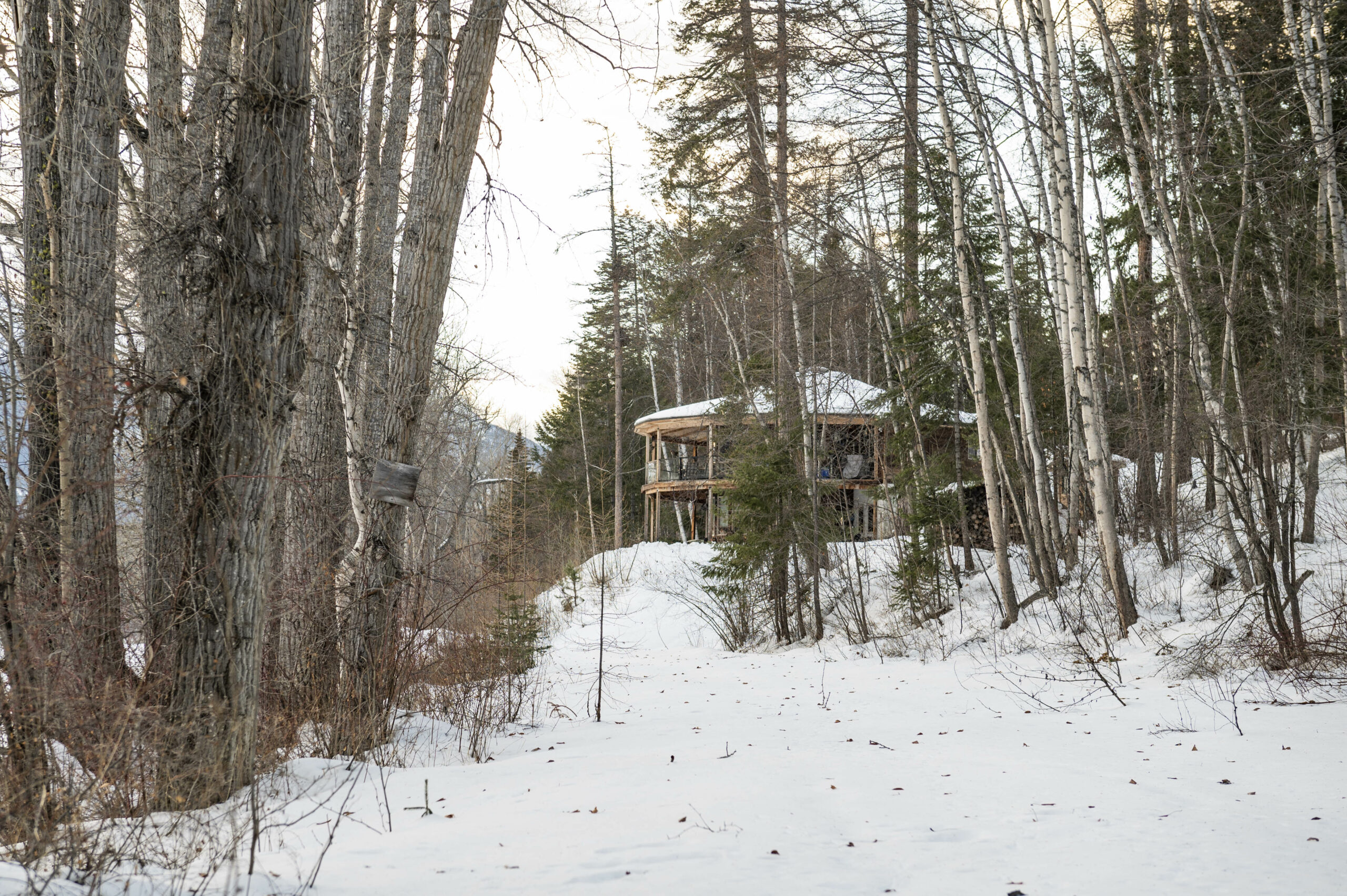
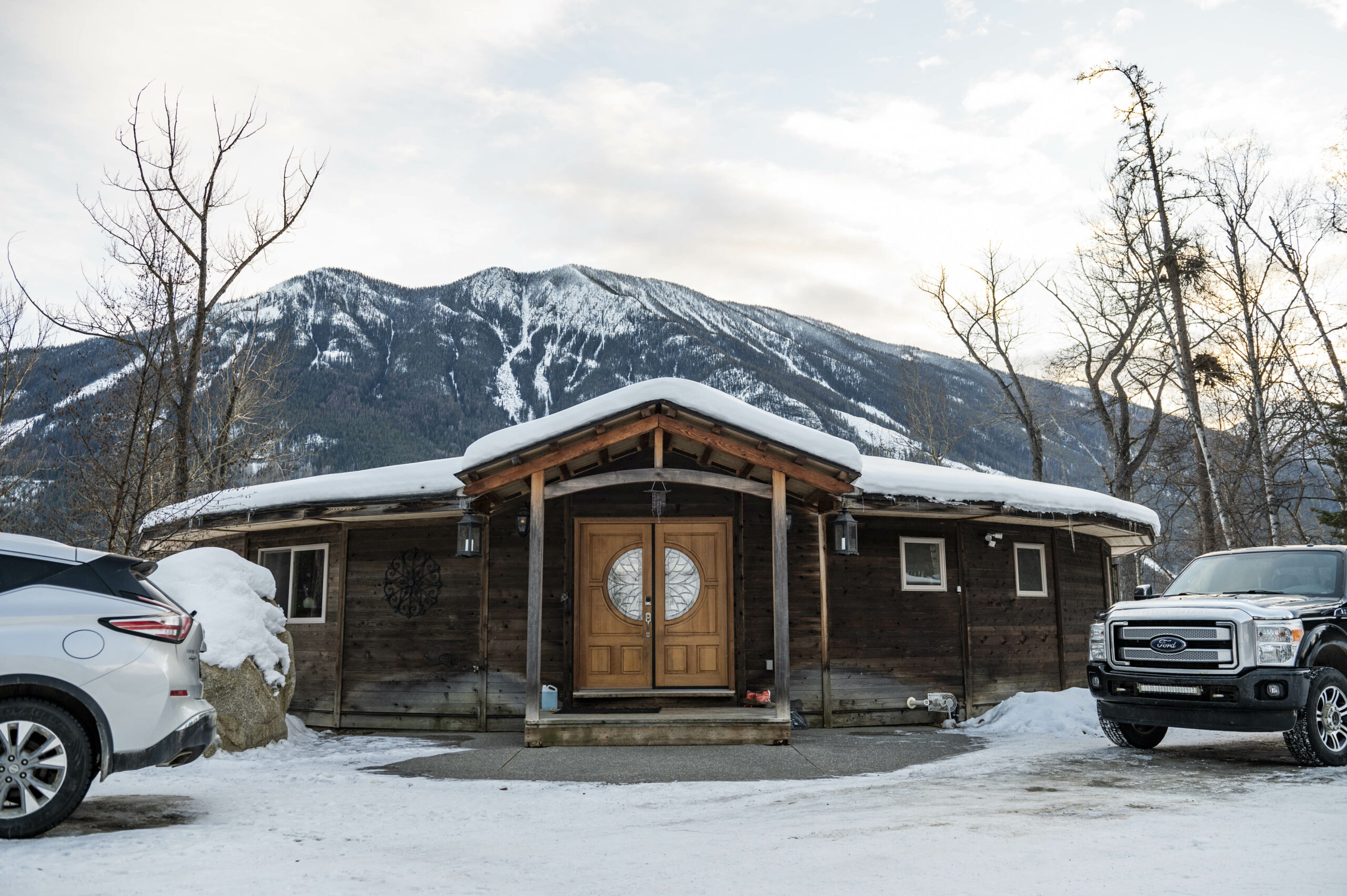
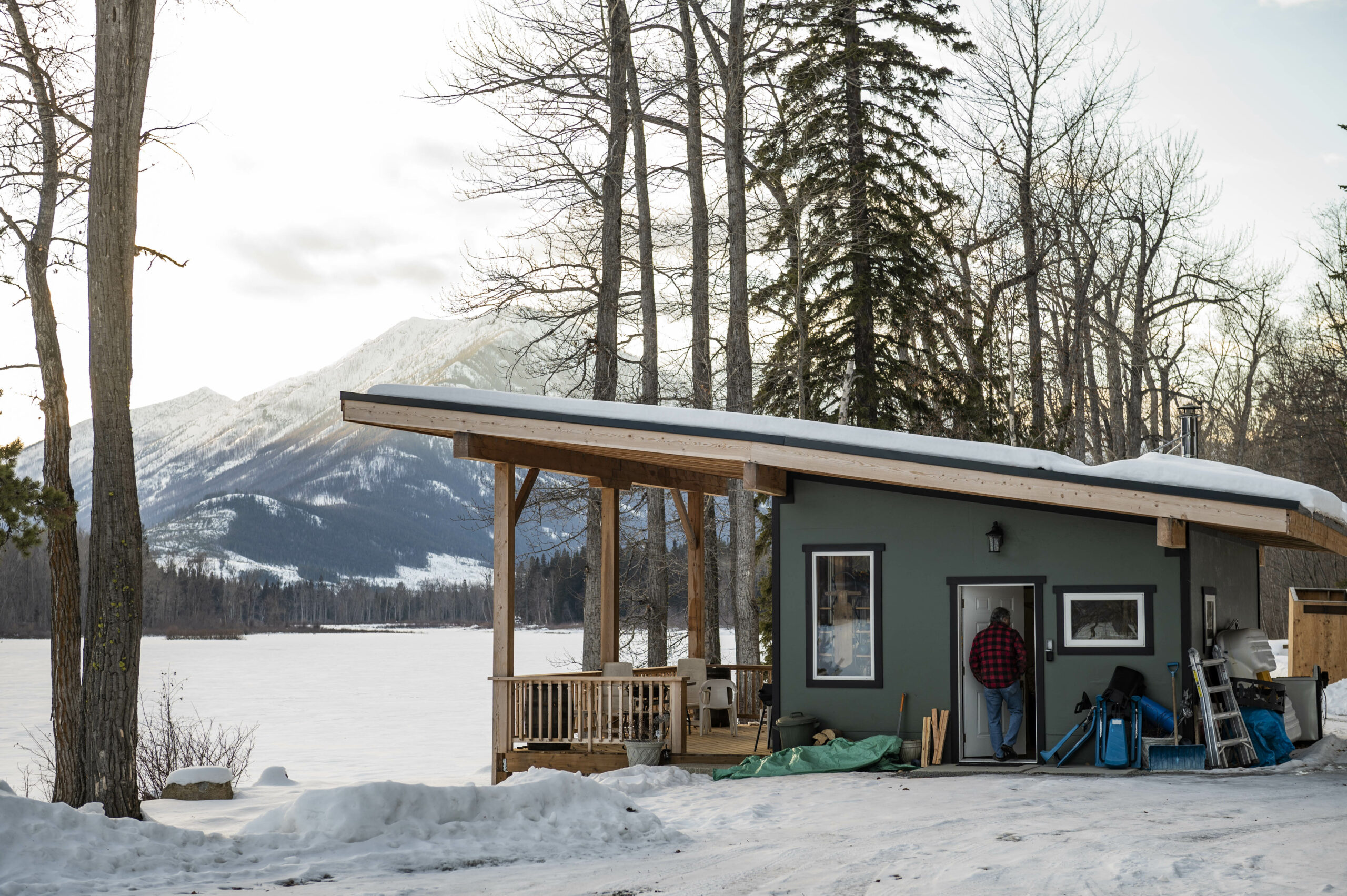
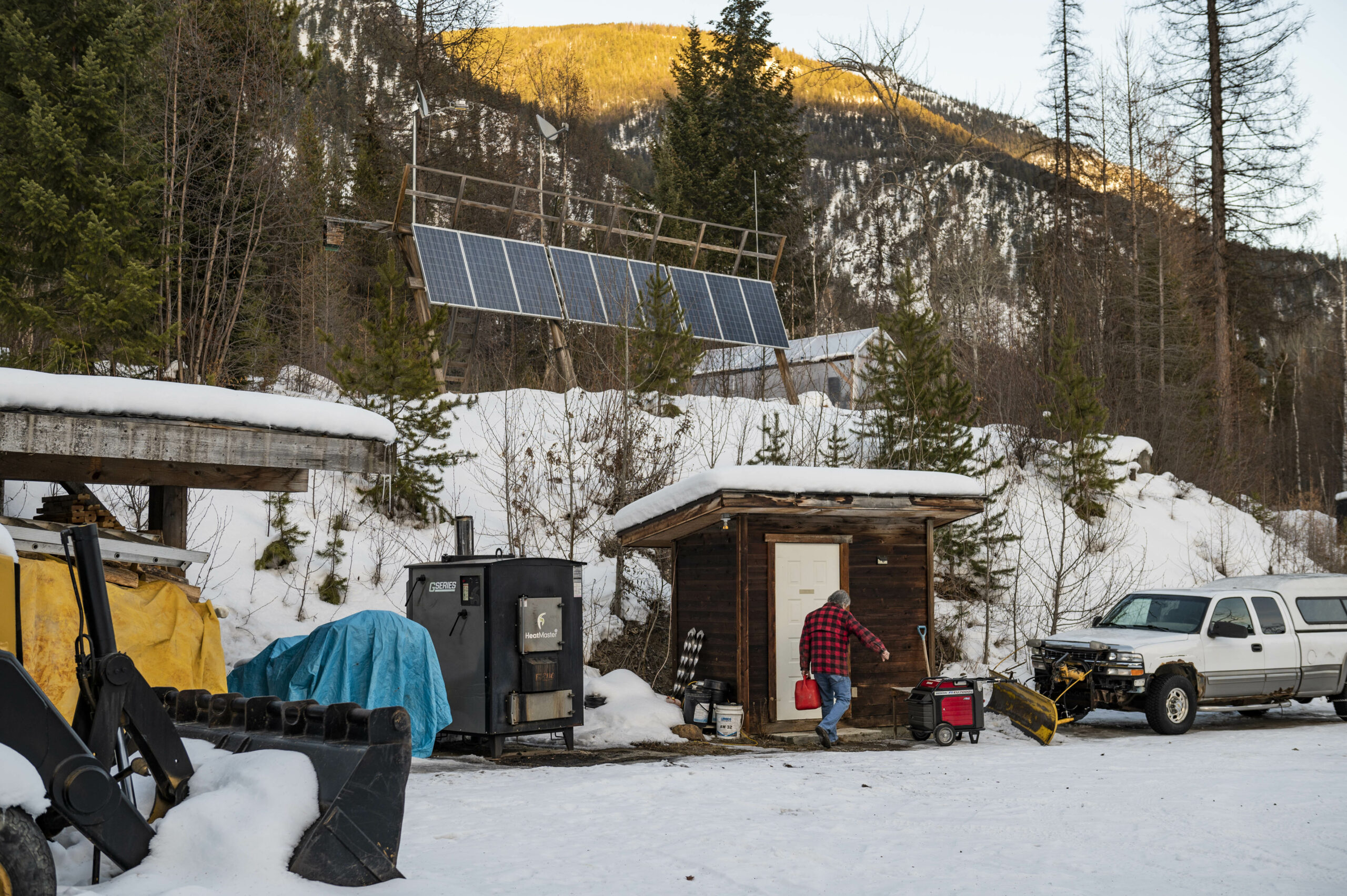
“Government is doing its damnedest to talk to First Nations, to work with them,” Merkel told me. “We have a long history as First Nations of government jamming things down our throat … so when government comes out with something like [the deferrals], a lot of people’s first reaction is, ‘Piss on you, you’re not telling us what to do. We are going to look at it.’ But they’re very busy, and I don’t think a lot of them appreciated the consequences of that decision.”
Early in the process, a handful of predatory logging companies had raced to log old-growth forests in areas where First Nations were mulling over the deferral option, he explained. Thankfully, that window of nefarious opportunity has mostly closed, as First Nations realize they now have authority to kick those companies out of their territory’s old-growth. “People caught on,” Merkel said.
One of the reasons this kind of talk is so explosive is that it can all too easily be construed as blaming First Nations for a problem they haven’t caused, but inherited. It was not Indigenous communities who liquidated over 90 per cent of the primary forest in B.C. — that was settler society, and the multinational forestry companies they ushered in.
“[First Nations] are late-comers into the business who ended up with a bit of guts and feathers, which included a lot of the deferral areas,” he said. “Government policy is to promote more First Nations ownership of tenure and control in the sector. You can’t do that and then drive everybody out.”
That could partially explain why few of the 214 First Nations elected band councils in B.C. have expressed any formal opposition to logging currently underway in their territory (it’s important to note that permission sometimes comes over the objection of hereditary leaders). A notable exception is the Spuzzum Nation, whose territory along the Fraser River marks the last remaining B.C. habitat for the spotted owl. The Spuzzum are also the only First Nation to have signed the United We Stand declaration, out of nearly 170 signatories.
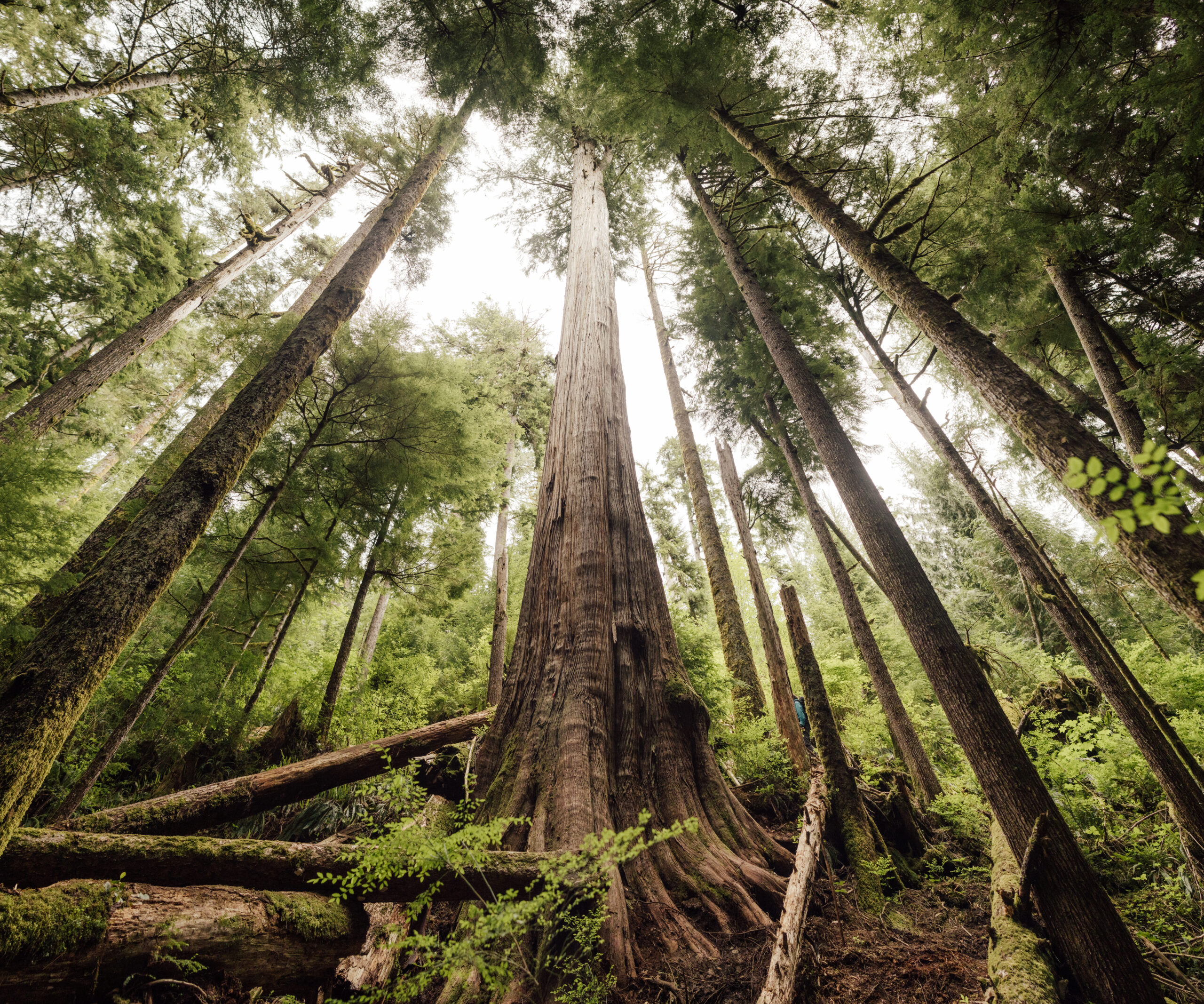
The Union of BC Indian Chiefs (UBCIC) has also signed, and is one of the most vocal critics of the NDP’s forestry policy. Their communications tend to frame old-growth forest protection as an ecological issue, while skirting the thornier implications for Indigenous Rights. “You can’t simply parcel this off as an Indigenous cultural rights issue,” UBCIC’s Grand Chief Stewart Phillip told me when I asked him about this with respect to Fairy Creek in 2021 (neither Phillip nor anyone else from the UBCIC were available to comment for this story).
Fairy Creek exemplified a dilemma playing out across the province: the Pacheehdat Nation’s elected chief and council repeatedly asked environmental protesters to leave, even as revered elder Bill Jones and other Pacheedaht members encouraged them to stay. How could an outsider get involved without picking sides? “You must remain focused on the fact that old-growth forests in British Columbia are at the point of extinction,” Phillip told me. “We all have a responsibility to do what we can to protect them.”
Merkel insisted that’s exactly what he and the provincial government, together with countless partners across the cultural spectrum, are doing. He also countered a criticism common in environmental-justice circles, which holds that the NDP is forcing Indigenous communities to make a painful choice: money or trees? Surely, this argument goes, the least our government could do is offer to pay First Nations not to log?
“Frankly, that’s quite offensive,” Merkel said when I put this to him. “That’s part of the reason we’re in this situation where everybody feels like we’re a welfare case and we’ll just give you money and take care of you. That really gives you no incentive to actually be good at business.”
In other words, Indigenous communities are in the same bind as every other forest-dependent community in B.C.
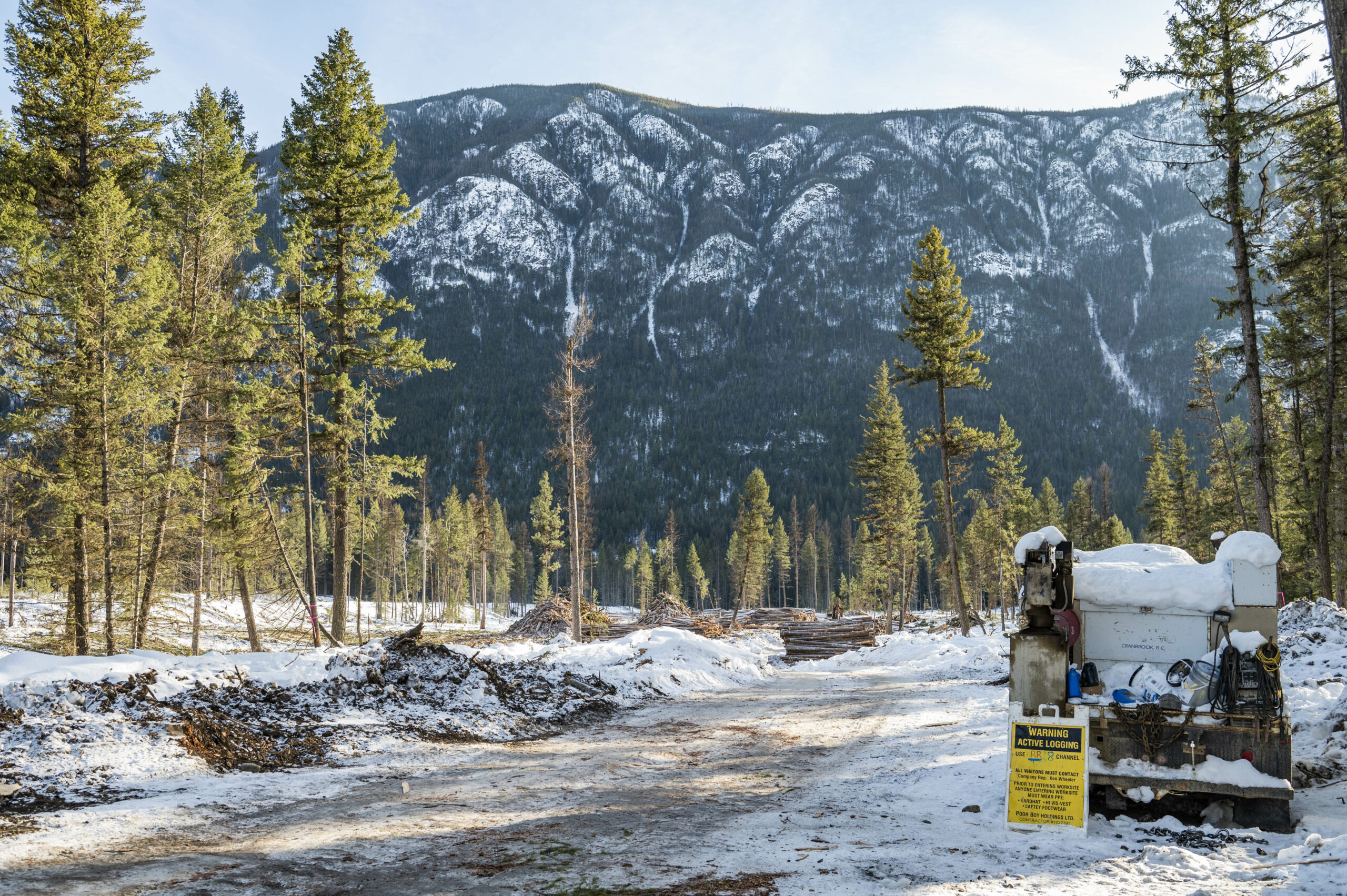
It wasn’t long ago that the chair of the Steelworker’s Wood Council, Jeff Bromley, responded to a government-support package for laid-off mill workers with the exact same sentiment, saying “I’m getting a little tired of retirement packages.”
Another person who articulated the problem at the heart of Merkel’s complaint was Torrance Coste, the national campaign director with Wilderness Committee and a key organizer of the United We Stand coalition. When I called him to talk about the coming rally, our conversation turned to the way traditional media tends to portray the collapse of B.C.’s forest industry as a consequence of government regulation.
“The jobs-versus-environment trope is one thing that really gets my back up,” Coste said. “The reality has been corporate profits at the expense of both.”
Inverting that model, making the health of communities and ecosystems paramount and mutually enhancing, is the very thing Merkel has been working on.
Over the course of our hour-and-a-half conversation, he described things like putting an end to clearcuts and revamping the way stumpage fees are calibrated, how cutblocks are replanted, how penalties for misdemeanors are calculated and enforced and many more details involved in making ecosystem health replace timber as the primary unit of value in forests.
This is all laid out in the strategic review, but Merkel went further. He described an effort to build a new bureaucracy for First Nations to interface with the B.C. government, one that leaves the nation-to-nation model intact but also allows for a more efficient way to make regional and provincial land-use decisions. After all, the cumbersome nature of conducting 214 unique negotiations is a big part of the reason it’s taking so long to implement the paradigm shift his review spelled out.
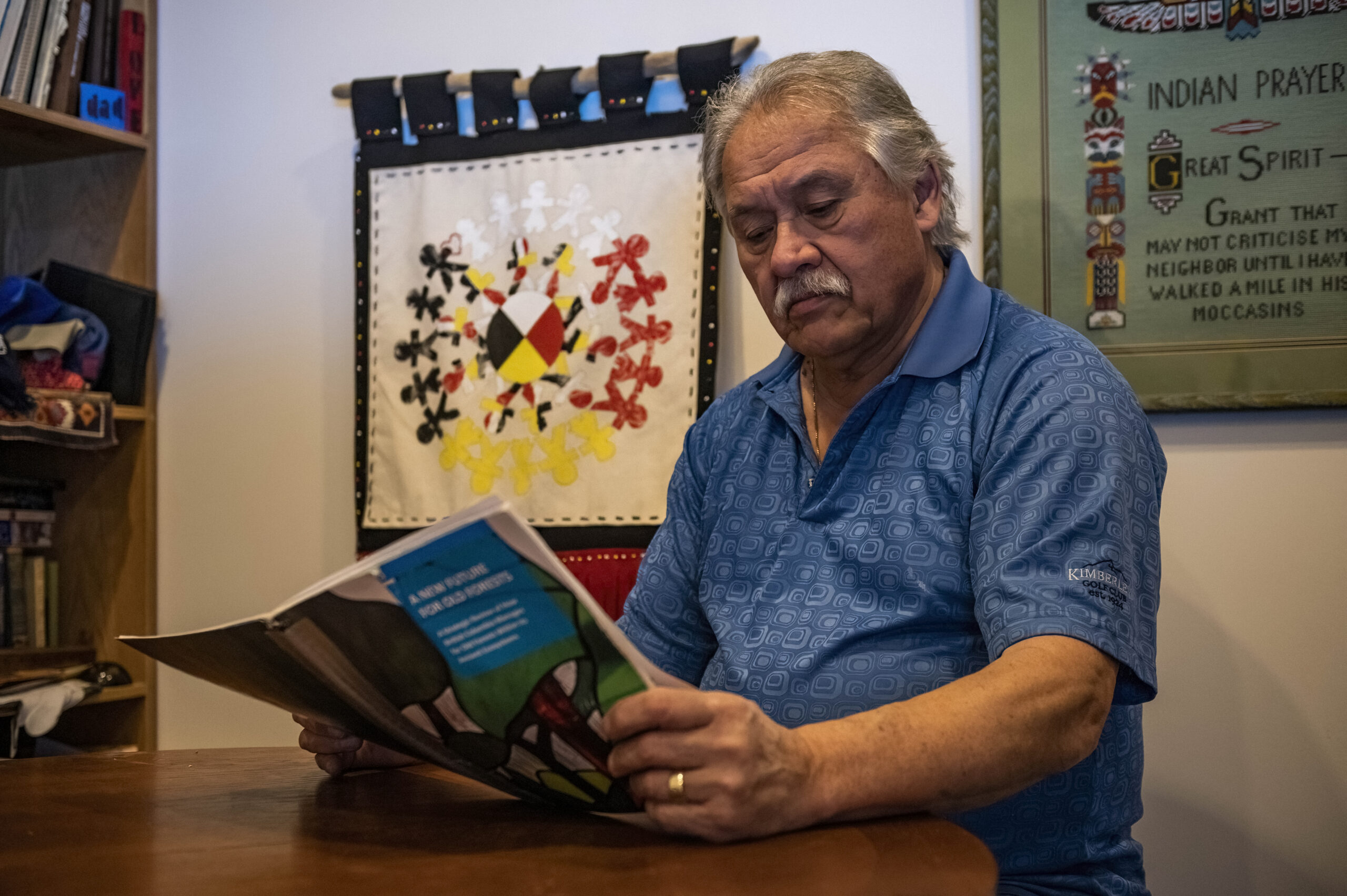
Merkel acknowledged that the pace of change is excruciating, including for himself. But in his view, going slow is the cost of making a deep paradigm shift permanent. “If government just mandates and legislates everything and jams it down everybody’s throat, then you’ve pissed off First Nations, industry — everyone goes away bitching.” That approach, he insisted, would leave the door wide open for the next government to reverse any progressive legislation this one enacts. “For the longer term, this is not something they could just legislate overnight. You really have to think legacy when you do this.”
The scope and complexity of these endeavours are huge. But a point Merkel emphasized is that B.C.’s NDP government has been a willing and eager partner. Not “talking and logging,” but operating in good faith.
Merkel also emphasized that he does not identify himself with the NDP, nor claim to speak for them. “I am not partisan at all. I work with anyone who is doing good work,” he said.
“We’re talking systemic change at a scale we haven’t done, ever,” he told me. “Nobody knows how to do it. We’re making this up. We’re figuring it out together.”
That was already true under former premier John Horgan’s leadership, Merkel insisted, and it appears to him that Premier David Eby is determined to accelerate the process. “He has made this much more of a priority,” Merkel said. “I think one of the things he’s come to appreciate is that this is a massive frigging change we’re talking about here.”
So far, Eby has only hinted at what that massive change will look like in policy terms, or when it will come.
Halfway through January, the premier announced a $90 million innovation fund aimed at getting “more jobs per tree.” He spoke then of shifting industry “to a greater community focus,” away from the “huge companies and big international models” that continue to dominate forestry in this province. Perhaps most promising of all, the premier insisted that “sustainability doesn’t mean looking to the remaining old-growth and saying that that’s how we’re going to fuel the industry going forward.”
But it’s going to take more than $90 million and a few encouraging words to placate the protesters heading to his office for Feb. 25 — Eby’s 100th day in office.
“There’s not a huge level of disagreement between us on what should happen,” Torrance Coste told me, referring to Merkel and the NDP. “We’re challenging them on when. Because you can put together the best plan ever for transformation of the forest sector, for transformation of resource extraction, for a total change in the paradigm in the way that we use and relate to the land here. If it takes 20 years, it doesn’t matter.”
Merkel insisted there will be actions on things protesters are demanding, like changes to stumpage fees. “I really wanted to see it implemented within six months, and that was about three months ago,” he told me. “We have everything we need.”
“No one’s more hopeful than me that he’s right on that,” Coste replied, when I shared Merkel’s message with him. “If Eby surprises us and actually changes some things on the ground within his first 100 days, then we’ll just have a huge party and celebrate.”
Wouldn’t that be nice. The old-growth strategic review set a 2023 deadline for full implementation of its recommendations. It didn’t say which month. Feb. 25 may seem an arbitrary date, but Eby helped set it himself by vaguely promising to “accelerate” his predecessor’s old-growth plan by then.
However much room that leaves for interpretation, one thing is surely clear: for politicians and forests alike, time is running out.
Updated Wed. Feb. 8, 2023, 11:30 a.m. PT: This story was updated to clarify Garry Merkel’s thoughts on his relationship with the NDP, who is responsible for logging mismanagement and the expected timing of the next steps for implementing the old-growth strategic review. It was also updated to include the name of his co-author Al Gorley.
This work is made possible with the support of the glasswaters foundation. As per The Narwhal’s editorial independence policy, no foundation or outside organization has editorial input into our stories.
Get the inside scoop on The Narwhal’s environment and climate reporting by signing up for our free newsletter. On a warm September evening nearly 15...
Continue reading
10 billion litres of sewage are dumped into Winnipeg’s lakes and rivers each year. Some...

Court sides with Xatśūll First Nation, temporarily halting Mount Polley mine waste expansion

Break out the champagne: Emma’s storied life and leadership in journalism has earned her the...
